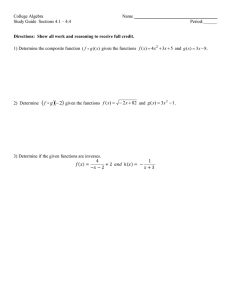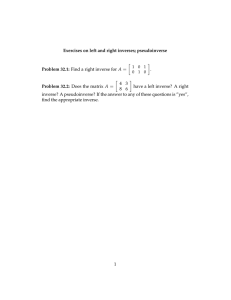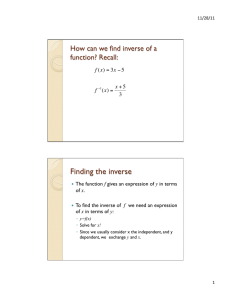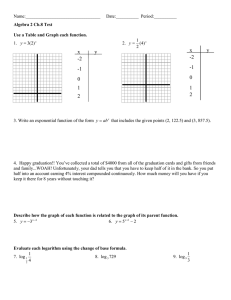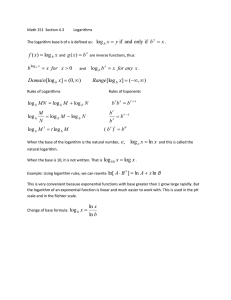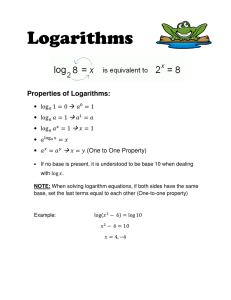1
advertisement
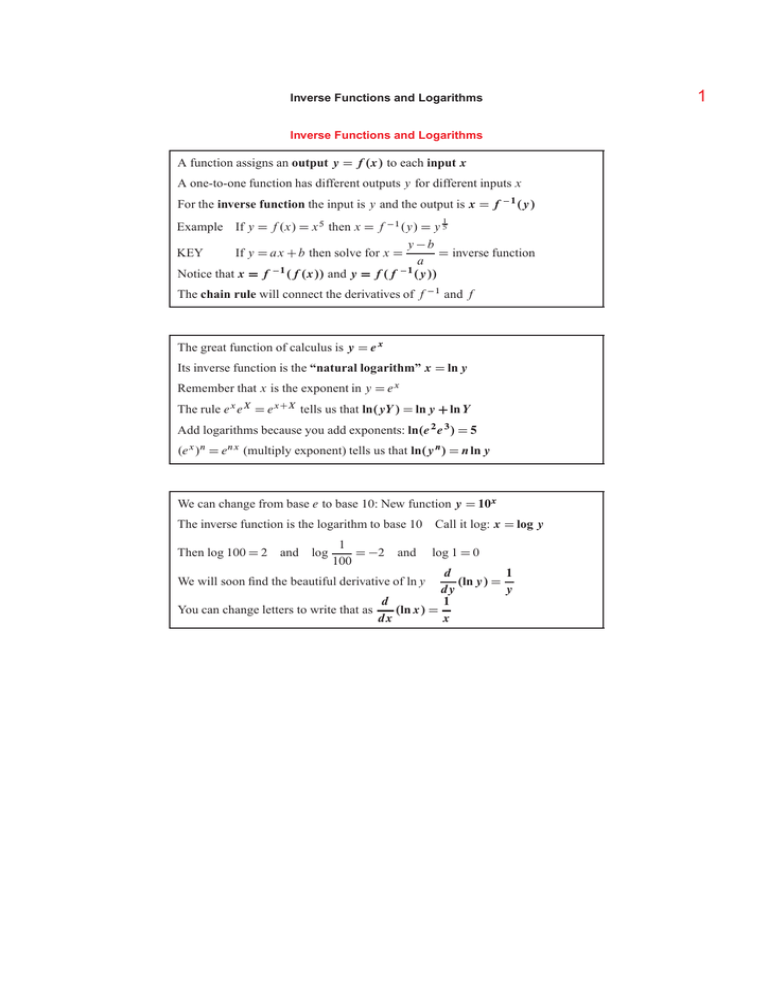
Inverse Functions and Logarithms Inverse Functions and Logarithms A function assigns an output y D f .x/ to each input x A one-to-one function has different outputs y for different inputs x For the inverse function the input is y and the output is x D f �1 .y/ Example If y D f .x/ D x 5 then x D f �1 .y/ D y 5 y �b KEY If y D ax C b then solve for x D D inverse function a � 1 � 1 Notice that x D f .f .x// and y D f .f .y// 1 The chain rule will connect the derivatives of f �1 and f The great function of calculus is y D e x Its inverse function is the “natural logarithm” x D ln y Remember that x is the exponent in y D e x The rule e x e X D e xCX tells us that ln.yY / D ln y C ln Y Add logarithms because you add exponents: ln.e 2 e 3 / D 5 .e x /n D e nx (multiply exponent) tells us that ln.y n / D n ln y We can change from base e to base 10: New function y D 10x The inverse function is the logarithm to base 10 Call it log: x D log y Then log 100 D 2 and log 1 D �2 100 and log 1 D 0 d 1 .ln y/ D dy y d 1 You can change letters to write that as .ln x/ D dx x We will soon find the beautiful derivative of ln y 1 2 Inverse Functions and Logarithms Practice Questions 1. What is x D f �1 .y/ if y D 50x ? 2. What is x D f �1 .y/ if y D x 4 ? Why do we keep x � 0 ? 3. Draw a graph of an increasing function y D f .x/: This has different outputs y for different x: Flip the graph (switch the axes) to see x D f �1 .y/ 4. This graph has the same y from two x’s. There is no f �1 .y/ y x f .x/ x f .x/ is NOT one-to-one y f �1 .y/ is NOT a function � 5. The natural logarithm of y D 1=e is ln.e �1 / D ? What is ln. e/ ? 6. The natural logarithm of y D 1 is ln 1 D ? and also base 10 has log 1 D ? 7. The natural logarithm of .e 2 /50 is ? The base 10 logarithm of .102 /50 is ? 8. I believe that ln y D .ln 10/.log y/ because we can write y in two ways y D e ln y and also y D 10log y D e .ln 10/.log y/ : Explain those last steps. 9. Change from base e and base 10 to base 2: Now y D 2x means x D log 2 y: What are log 2 32 and log 2 2 ? Why is log 2 .e/ � 1 ? MIT OpenCourseWare http://ocw.mit.edu Resource: Highlights of Calculus Gilbert Strang The following may not correspond to a particular course on MIT OpenCourseWare, but has been provided by the author as an individual learning resource. For information about citing these materials or our Terms of Use, visit: http://ocw.mit.edu/terms.
